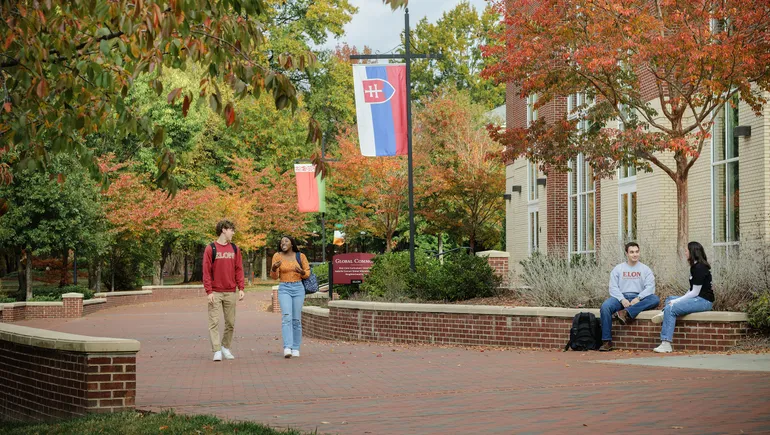Study abroad experiences help students develop highly sought-after professional skills such as adaptability, critical thinking, cultural awareness and self-reliance. But the most recent data from the Institute of International Education reveals that less than 6% of U.S.-based undergraduate students participated in these programs during the 2021-22 academic year.
Given how important study abroad programs are to student development and early career outcomes, how can universities provide avenues for all students – regardless of their educational or economic backgrounds – to pursue a globally minded education? One effective solution lies in maximizing global experiences, both on campus and abroad, to help students cultivate the global perspectives that are pivotal for career development.
Faculty might want to consider infusing global education into core classes by offering an interdisciplinary, first-year seminar that challenges students to examine their personal and social responsibilities in an international context, with contemplative exercises to deepen the experience. In this type of course, students can develop essential skills in critical thinking and persuasive writing while cultivating a deeper appreciation for diverse cultures, preparing them for the challenges and opportunities they may encounter in their postgraduate life.
Outside of traditional classroom settings, universities can regularly employ film screenings, speaker series, panels, dinners and other community events that contribute to student development and showcase diverse, global voices. Consider leveraging faculty members’ networks and engaging with on-campus organizations to expose students to a wide range of perspectives and insights and cultivate global citizenship.
To further demonstrate your university’s commitment to accessible global experiences, scholarships for students who may not be able to afford the additional cost of international study, along with innovative and targeted opportunities such as a team-based study abroad program for student-athletes, can open doors for students who feel closed off to study abroad. Allow study abroad grants to be customizable so that students can choose what is the most meaningful – and feasible – in their lives and areas of study. Also consider different abroad experiences, such as immersive service opportunities, designed to introduce students to new communities while addressing pressing global social issues.
Elon University, recognized as a national leader in experiential global learning and home to the highest percentage of undergraduate students participating in study abroad programs, integrates study abroad experiences into its five signature Elon Experiences, which include internships, research, leadership and service. As we contemplate a future where global perspectives and skills are paramount, consider how international education programs – both on-campus and abroad – can more intentionally contribute to students’ holistic development and prepare them for success in a diverse, interconnected world.
For resources and information on the benefits of engaged learning and how to integrate engaged learning practices into your curriculum, visit Elon University’s Center for Engaged Learning.
